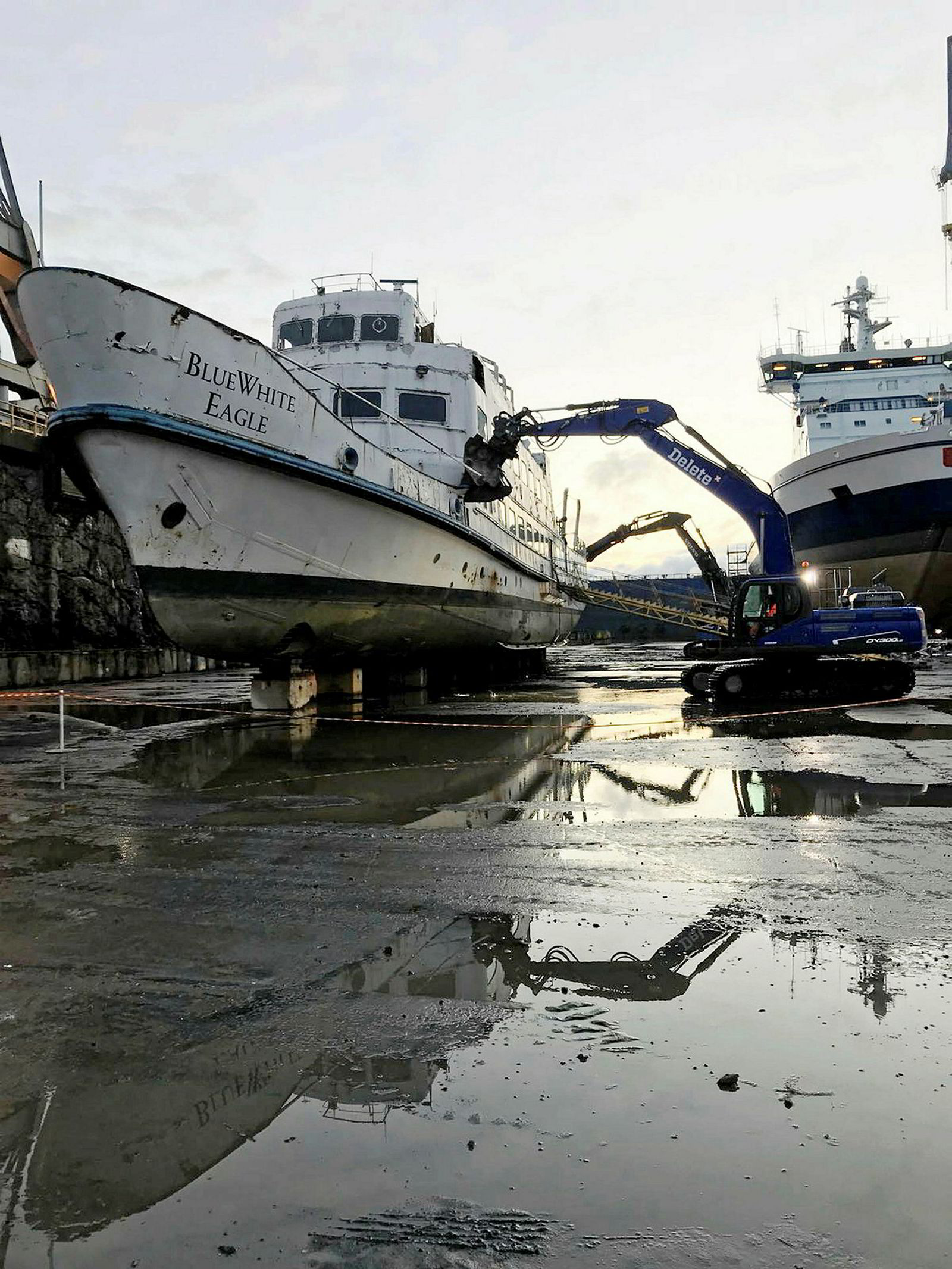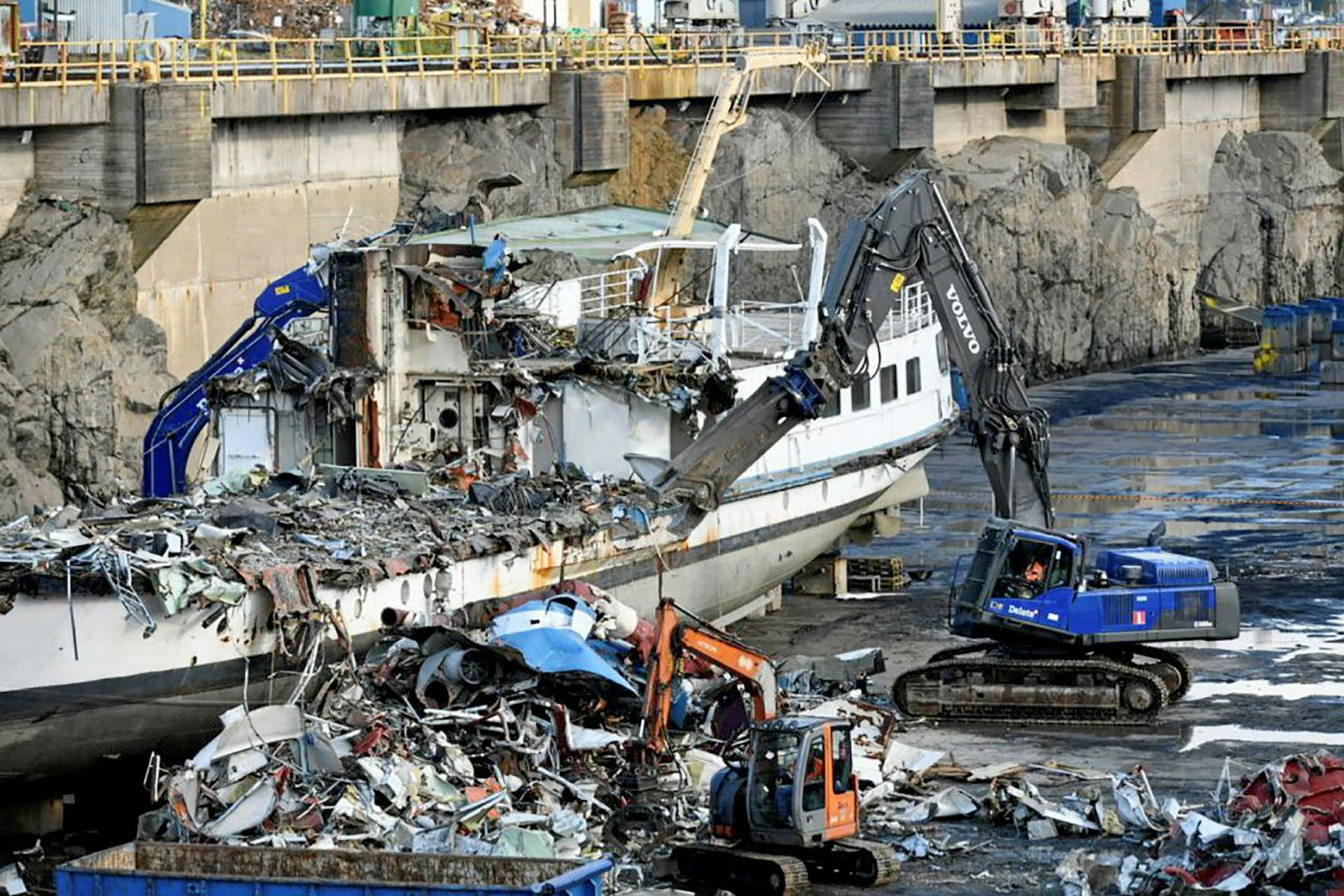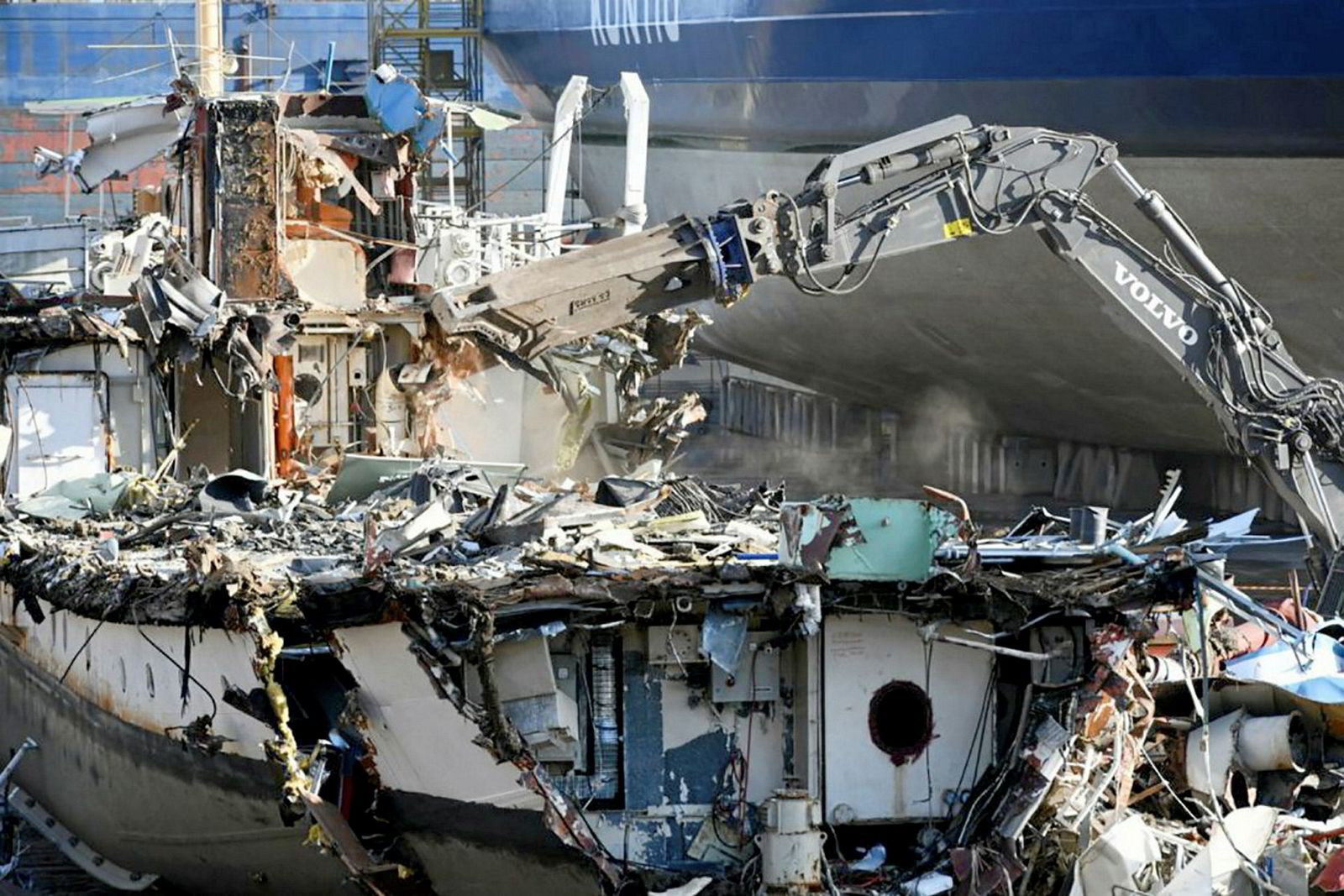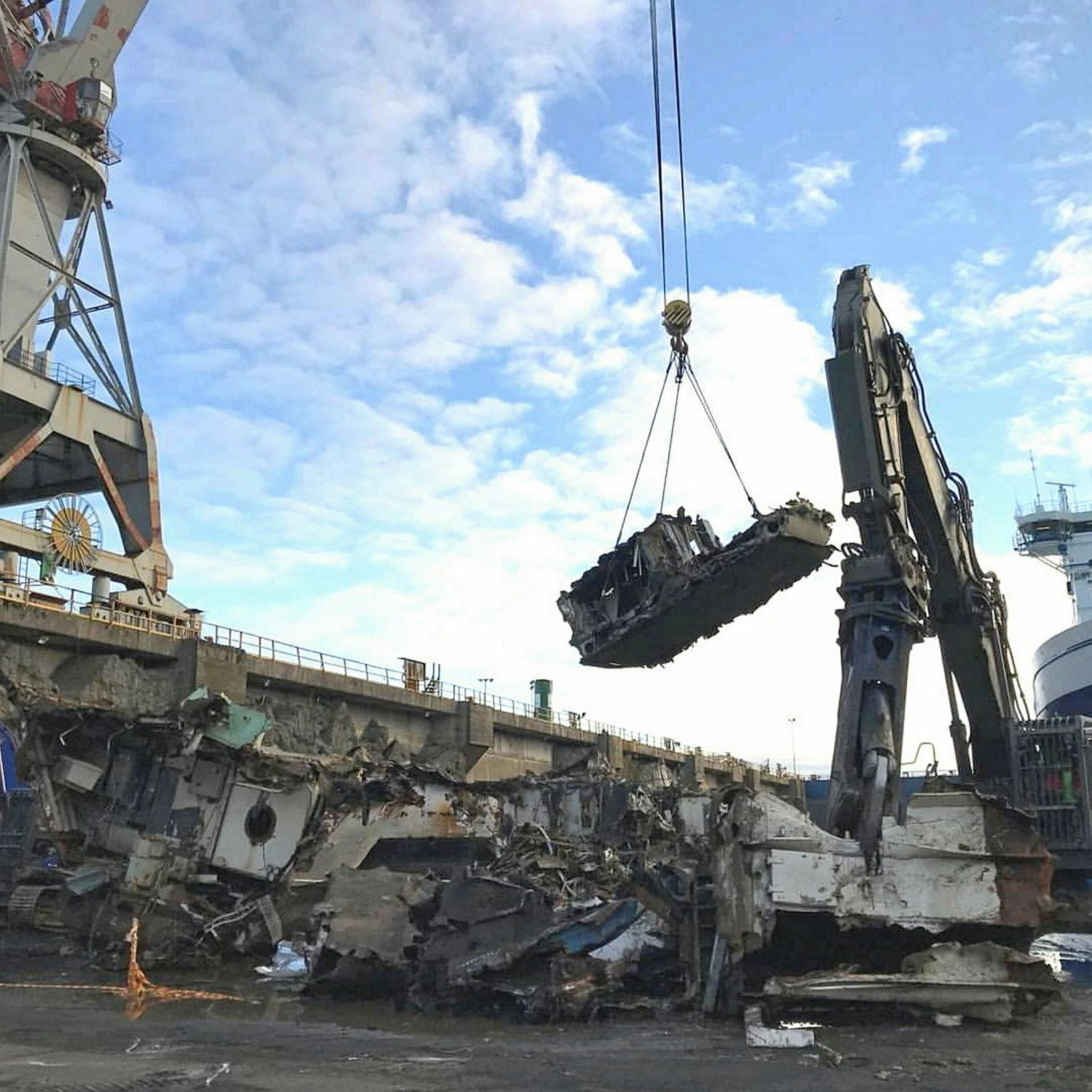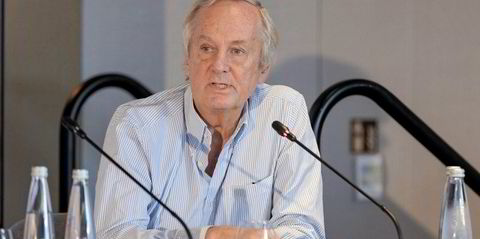An ambitious Finnish project that aims to get a slice of the market for sustainable ship recycling on a commercial basis has taken a step forward.
Recyclingships Finland has moved from the planning phase to the physical dismantling of a pilot vessel, the 710-gt cruiseship BlueWhite Eagle (built 1960), at Turku Repair Yard in Naantali.
The search for a suitable vessel began in April, with the BlueWhite Eagle purchased for €2,000 ($2,300) by project partner Meriaura in August from the city authorities of Lappeenranta, where it had been lying since its owner went bankrupt.
The 710-gt vessel was towed to Naantali via the Saimaa Canal. After arriving at Turku, the interior fittings were stripped out, including asbestos. Topsides equipment including bollards and anchor gear were removed by gas cutting torch.
The ship was then transferred to the yard’s 265-metre graving dock — one of the largest in northern Europe — and the hull mechanically cut up by Finnish demolition specialist Delete.
Delete used a metal cutter wielded by a 48-tonne Volvo excavator and another smaller scissors on a 30-tonne Doosan excavator.
“The entire process took eight or nine days,” Delete business area manager Janne Salonen told TradeWinds.
“There is nothing left of it except the main engines.”
The waste material was sorted on site and sent for recycling, down to small amounts of brass and copper.
Tank and bilge pumping and cleaning, as well as cleaning of waste materials, was undertaken by project partner Hans Langh. All oily wash water was recovered for treatment.
“We are quite happy with the process,” said Salonen.
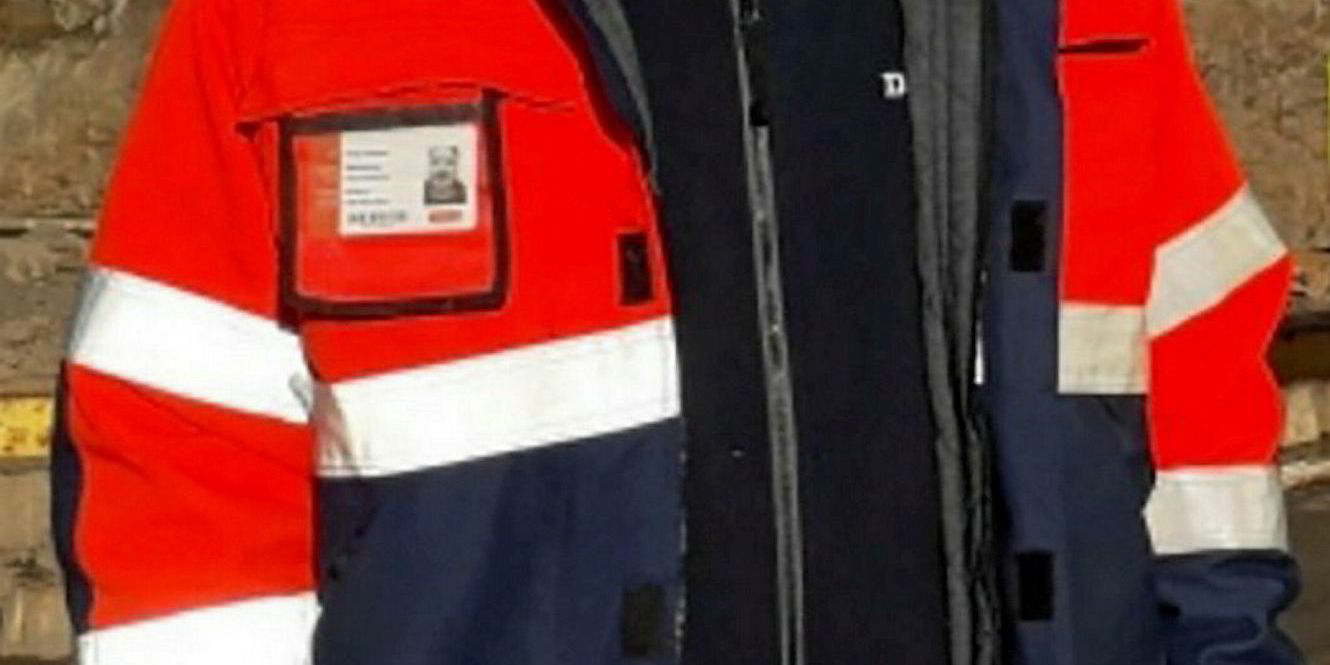
The major lesson learned is that it is complicated to dismantle this kind of small cruiseship because they contain so many different materials, Salonen says.
"That adds to the cost," he said. “Simpler ships would be cheaper.”
He confirms that Meriaura is searching for another recycling candidate. The project is looking for a different kind of vessel of at least 100 metres in length.
“There have already been a couple of candidates offered but they were too expensive,” Salonen said.
He is not prepared to reveal the total cost of the BlueWhite Eagle operation. Some key support came from government innovation funding agency Tekes but it has also involved experimental investment.
“The next ship will enable us to see the bigger picture,” he said.
While working methods will be evaluated and further developed, the project partners aim to eventually get Turku on the European Union's list of approved recycling yards.
They believe the market for environmentally friendly recycling will grow as regulations tighten for scrapping ships flying EU flags.
The EU has also proposed imposing a ship recycling licence that would require owners to pay an annual fee towards the cost of cost of end-of-life demolition at an approved yard.
